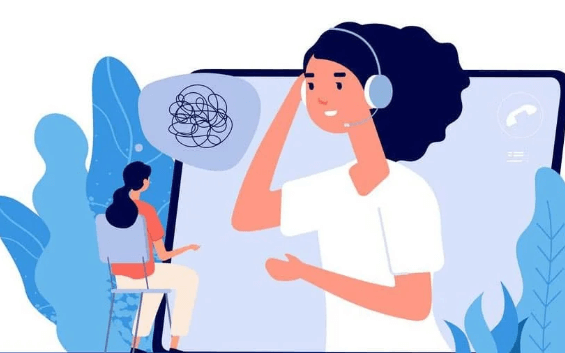How Online Counselling and Therapy Are Changing Lives

In today’s fast-paced world, the need for mental health support has never been more apparent. Online counselling and online therapy are emerging as game-changing solutions, offering convenient and effective ways to access professional help from the comfort of your home. These innovative methods have revolutionized how we think about mental health care, making it more accessible, affordable, and stigma-free for millions of people worldwide.
Why Online Counselling and Therapy Matter
Mental health is an essential aspect of overall well-being, yet many people hesitate to seek help due to barriers like geographical location, cost, or fear of judgment. Online counselling and online therapy break down these barriers, allowing individuals to connect with licensed professionals anytime, anywhere. Whether you’re dealing with stress, anxiety, depression, or relationship issues, these platforms provide a safe and private space to share your concerns and work toward solutions.
The Benefits of Online Counselling and Therapy
1. Accessibility
One of the primary advantages of online counselling is its accessibility. People living in remote areas often lack access to qualified therapists. Online platforms bridge this gap, ensuring everyone has equal opportunities to seek help, regardless of their location.
2. Convenience
Scheduling appointments for traditional therapy can be challenging, especially for those juggling busy lives. Online therapy allows you to connect with a therapist at a time that suits you best, eliminating the need for travel and waiting rooms.
3. Affordability
Online counselling services often cost less than in-person sessions, making professional help more affordable. Additionally, many platforms offer flexible pricing models, including sliding scales or subscription plans.
4. Anonymity and Privacy
For individuals who feel uncomfortable attending therapy in person, online therapy offers a level of anonymity that can be reassuring. Sessions are conducted in private, ensuring your confidentiality and comfort.
5. Variety of Services
Online platforms cater to various mental health needs, including cognitive-behavioral therapy (CBT), couples counselling, and career coaching. This variety ensures that users can find the right type of support tailored to their specific concerns.
How Online Counselling Works
Online counselling typically involves connecting with a licensed therapist through a digital platform. Here are the key steps:
- Choosing a Platform: Research and select a reputable online counselling service.
- Matching with a Therapist: Most platforms use algorithms or questionnaires to match you with a therapist best suited to your needs.
- Scheduling Sessions: Book appointments at your convenience. Sessions can be conducted via video calls, phone calls, or even text messages.
- Engaging in Therapy: Discuss your concerns and work collaboratively with your therapist to develop coping strategies and solutions.
Research and Evidence Supporting Online Therapy
Numerous studies highlight the effectiveness of online therapy. According to a 2018 study published in the Journal of Psychological Disorders, online cognitive-behavioral therapy (CBT) is as effective as face-to-face sessions for treating anxiety and depression. The American Psychological Association (APA) also acknowledges the growing evidence supporting the efficacy of online counselling, particularly for individuals seeking flexible and accessible mental health care options.
Common Misconceptions About Online Counselling
Despite its growing popularity, several myths surround online therapy. Let’s debunk some of them:
- Myth 1: Online therapy isn’t effective. Research proves that online therapy can be just as effective as traditional methods, especially for issues like anxiety, depression, and stress management.
- Myth 2: It’s not secure. Reputable platforms use encryption and other security measures to ensure your data remains confidential.
- Myth 3: It’s impersonal. Many users report feeling just as connected to their online therapists as they would in a face-to-face setting.
FAQs About Online Counselling and Therapy
1. Is online counselling suitable for everyone?
While online therapy is effective for many, it may not be ideal for individuals dealing with severe mental health conditions or crises requiring immediate, in-person intervention.
2. How do I know if an online platform is legitimate?
Look for platforms with licensed therapists, clear privacy policies, and positive user reviews. Reputable platforms are transparent about their qualifications and services.
3. Can I switch therapists if I’m not satisfied?
Yes, most online counselling platforms allow you to change therapists if you feel your current match isn’t meeting your needs.
4. Do insurance plans cover online therapy?
Many insurance providers now include online counselling as part of their mental health coverage. Check with your provider for details.
5. What equipment do I need for online therapy?
A stable internet connection, a computer or smartphone, and a quiet, private space are typically all you need.
Conclusion
Online counselling and online therapy are transforming the mental health landscape, making it easier than ever to access professional support. Whether you’re facing everyday stress or more significant challenges, these services offer a lifeline to better mental health. By breaking down traditional barriers, they empower individuals to prioritize their well-being, one session at a time.
If you’re considering therapy, exploring online options could be the first step toward a healthier, happier you.





